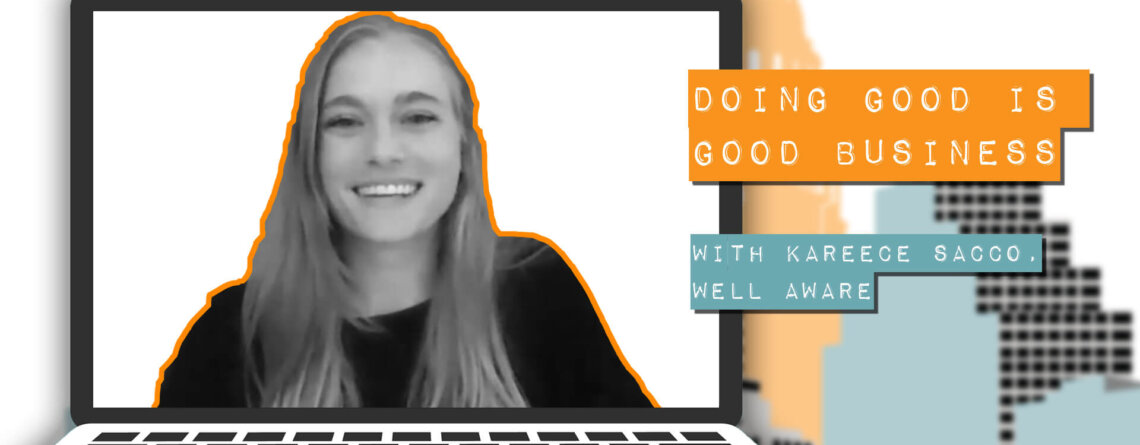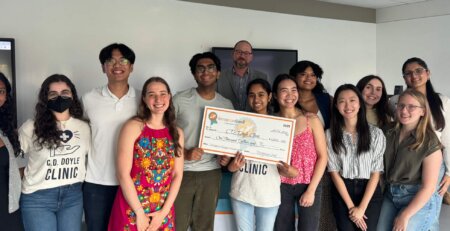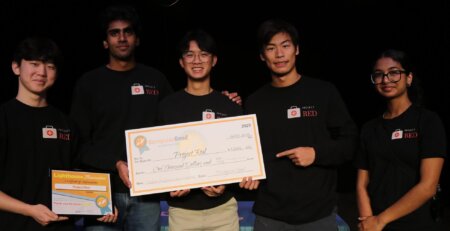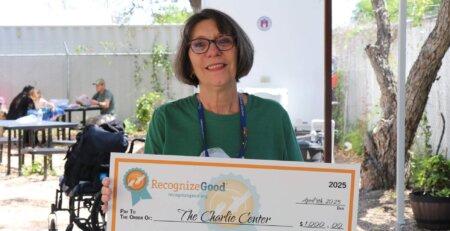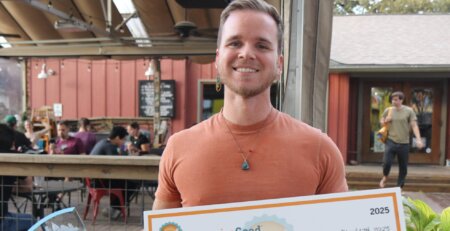Right Thing = Good Business w/ Kareece Sacco, Well Aware
Amit Pal2024-01-12T19:21:09-06:00 02Jun
RecognizeGood: Well Aware makes a pointed effort to not go in and just help the communities in Africa that you serve, but to collaborate and work with and make it more of a relationship based on, [RecognizeGood’s] founder always says trust, respect, and mutual appreciation, and I think that’s applicable here. Why is that important and what makes it worth the extra effort to do it that way? Kareece: That’s a great question and it’s one of the most important pieces of our model. We are not here to tell people what they do and don’t want or do and don’t need. We are just here to help provide funding and expertise that maybe some of these communities don’t have. If they’re in need of clean water, they lack it basically because they don’t have the funding or expertise to do it themselves, so they are reaching out and we are just here to provide that peace for them so they can continue to grow and thrive as a community. They know what they need, it’s their home, and we are just here to provide that extra piece of assistance so that they can be fully empowered and thrive. The first step of our project process is a community submitting a project request form. We never just show up and say, hey you need clean water so we’re going to give it to you. It is a combined effort between us and the community and we listen to their needs. Two of our full time Kenyan-based team members, their sole job is to get to know these communities and do some impact surveying to get to understand the full needs within the community and help them elect a water committee if they don’t already have that. It is such an important piece and it’s also such a huge piece of ensuring the long-term sustainability of these systems by empowering the communities. I’ve had the pleasure of getting to sit in on a handful of water committee meetings in these community and our community team is very good at saying, this is not a Well Aware project. This is your project, and its success relies on you taking care of it and ensuring its success. We are just here to provide the tools that you need to really grow and thrive. RecognizeGood: How did the shower strike turn out by the way? Seemed like it was a raging success. Kareece: It was a huge success. There are not enough words to thank all the people who were part of it. The participants, the people who actually went on shower strike, and then the people who donated. We hit our goal this year, which is super exciting, especially since we had to cancel it last year. It’s a campaign based around not showering to raise funds and awareness for clean water needs. So we had to cancel last year because we always hold it in April and that was just not a good time. Being able to come back after a year of cancellation, hit our goal, and be able to provide clean water to that many more people through this campaign is just so important. We’ve got lots of projects in the queue already to go for this summer that are being funded by the efforts from this campaign. It was a lot of fun. It’s exhausting as always, but really the most fun campaign I’ve ever been a part of. It was a huge success and we’re just so grateful to everyone who was involved in a part of it. RecognizeGood: That’s excellent. Success breeds more success. When you hit your funding goal, you get to go do more, get to go help more people or help them better. One of the things that every nonprofit needs is to be transparent with funding, but you also need to take it an extra step. Why is it as important as it is for Well Aware to be as transparent as it is? Kareece: Transparency is just so important for every nonprofit. The people donating to your cause, they want to make a difference in the world and you’re just helping them do that. We are very transparent not only with where our funding is going, but how the work happens and that’s something we really encourage donors to pay attention to. Yes, looking at the spending buckets and where your funds are being spent within an organization, but also paying attention to those results over time and the work that you are helping to empower through your donations. We love to talk about success over time and the longevity of these systems and that’s just so important to getting new donors in the door and to get people really encouraged and empowered around your cause and get them passionate about what you’re doing. Telling them exactly where their dollars are going and exactly how that’s going to affect people for years to come up. It’s such an important part of our model, just sitting down and having these conversations with donors. Here’s the different buckets. Here’s the percent of every dollar going where, and here’s what that dollar is doing over the long term through us. $15 brings clean water to one person for decades and that’s because of the success of our systems and the long term years and years that these systems are providing clean water to people in need. RecognizeGood: I think what the students came in both years that you’ve been up for this away most impressed by was the fact that it is so sustainable. Everything is built around long term that also serves the environment, and you can know that once you’ve helped a village or group of people, they are helped for a long time. Can you just touch on the importance of sustainability in your systems and in general? Kareece: Sure, yeah, I mean the statistic we really like to talk about is that Well Aware has a 100% success rate, meaning every project we’ve ever implemented is still providing clean water to the community. The industry average in Africa is a 40% success within a year after implementation. In a place like Africa, clean water systems being implemented and 60% of those are failing within that first year. We work very hard to ensure that these systems are lasting for years and years and years and our ultimate goal is to have a community that no longer needs us. We’re actually working on some fun projects right now to put more power into the hands of the community so they need us less, but pumps fail, pipes break, so we are there to help with long term maintenance of these systems. Because of that, our impact numbers and our project numbers are never going to look as impressive as some of the bigger players in this sector, but we do just want to focus on the longevity of these systems because when you have a community that gets a clean water system and it fails within the first year, that almost puts the community in a worse spot than they were before they had the water system because they knew how to survive and how to get by. But then you give them this extreme hope, and then that system fails and that hope is lost. That’s almost more detrimental to a community than not having the water in the first place, so it’s important that when you’re doing this kind of work, you’re not only getting them access to clean water initially, but ensuring that they have that access for years and years to come.
